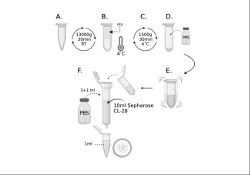nanoparticle tracking analysis
-
Search for biological correlates of non-suicidal behavior

Currently, practically nothing is known about the biological processes occurring in the brain in most mental pathologies. One such pathology is non-suicidal self-injury (NSSI). Researchers from the IHNA&NPh RAS and the Moscow Research and Clinical Center for Neuropsychiatry have outlined a new direction of research - the search for correlates of this condition with the composition of small extracellular vesicles (sEVs) in the blood. The results of a pilot study on this topic were recently published. The work assessed the quantitative characteristics of sEVs in the blood of patients with NSSI and compared the concentration and size of sEVs in patients with major depressive disorder with and without NSSI, as well as assessed the relationship between the sizes and concentrations of sEVs in the sample with such parameters as the severity of anxiety, depression and suicidal risk. The size and concentration of the isolated particles were assessed using dynamic light scattering and nanoparticle tracking analysis.
Authors found that NSSP in people with major depressive disorder is associated with a more severe course of the disorder (greater severity of depression, situational and personal anxiety), as well as a higher risk of suicide. The study did not reveal differences in the quantitative characteristics of sEV in patients with a depressive episode with and without NSSI. The authors believe that future research should be aimed at investigating the structural differences and functional features of sEVs in NSSI.